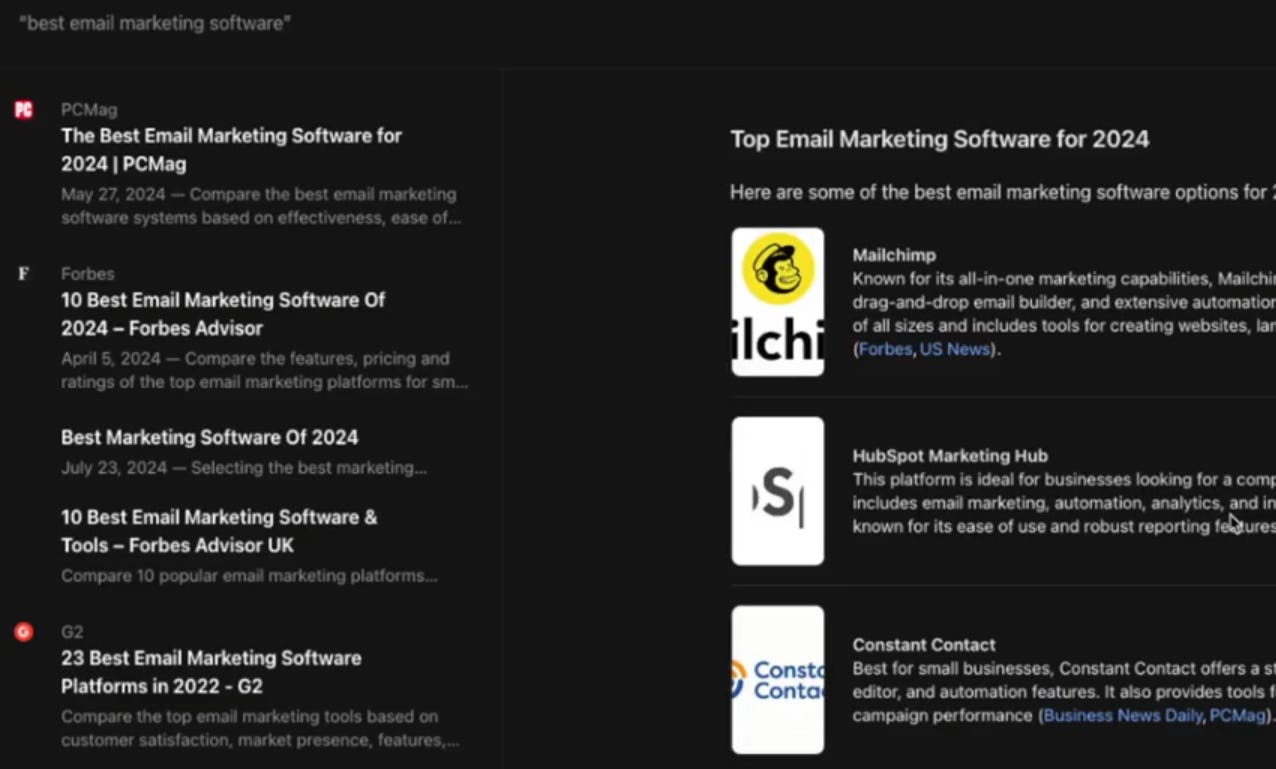AI Product Descriptions Reduce Consumer Trust, Maximising SEO with Google Trends & JavaScript Rendering Myths
SEO TL;DR #34 - 05/08/2024
Content SEO
Google Trends Insights: Maximising SEO
Google's Daniel Waisberg recently shared five key insights about Google Trends that can enhance your SEO.
Google Trends is a tool that shows how often specific keyword phrases are searched and how this changes over time.
The data in Google Trends is derived from a “random, statistically significant sample of actual search queries”. This approach provides accurate insights while handling Google's massive data volume more efficiently.
To ensure privacy and accuracy, Google removes noise and sensitive data such as full names. They also combine repetitive queries, which could distort the results.
Google Trends does not show exact search query volumes. It normalises the data by representing the highest search volume day as 100% and adjusting other days relative to this peak, which helps understand the relative popularity of search terms over time.
Google Trends allows you to explore topics related to your search queries. This tool groups search terms into topics, providing a more comprehensive view of a topic’s popularity.
Trends data can help you find and create content around topics rather than just keywords, which can sometimes lead to over-optimisation. It allows you to find content users will find helpful, gaining topical authority in an area, which is one of the best ways to improve organic traffic.
Content x AI
Mentioning AI in Product Descriptions Reduces Consumer Trust.
A WSU-led study covered in Search Engine Journal revealed that explicitly mentioning AI in product descriptions may reduce consumer trust and purchase intent.
The study polled over 1000 US adults and found that AI-labeled products consistently underperformed. Lead author Mesut Cicek concluded that:
AI mentions decrease emotional trust, hurting purchase intent.
This was true over a diverse product range, including smart TVs, electronics, medical devices, and fintech. Identical product descriptions with or without “artificial intelligence” showed AI labels performed worse.
The data shows a need to be cautious when introducing the latest AI features without proper testing. AI features should be introduced to help the user and not simply added due to FOMO.
Marketers must balance transparency with user comfort and think carefully about the messaging with AI. While AI can enhance products, its mention in marketing may negatively impact consumer behaviour.
Technical SEO
Deep Dive: How Google Indexes JavaScript
Search Engine Roundtable highlighted a study from Vercel and MERJ on Google's handling of JavaScript indexing, analysing over 100,000 Googlebot fetches across various sites.
They found that Google Search handles JavaScript almost as well as traditional web pages. Here’s a breakdown of their insights and myth-busting revelations:
Myth: Google can't render client-side JavaScript.
Reality: Google fully renders 100% of HTML pages unless they throw an error.
Myth: Google treats JavaScript pages differently.
Reality: Google effectively renders pages and discovers links regardless of JavaScript complexity.
Myth: Rendering queue and timing significantly impact SEO.
Reality: Most pages spend less than 20 seconds in the rendering queue.
Myth: JavaScript-heavy sites have slower page discovery.
Reality: Sitemaps ensure consistent discovery across different rendering methods.
Google’s Gary Illyes praised the study’s depth and confirmed Google’s strong rendering capabilities for modern web content.
These results were quite surprising for me as the traditional advice is to favour classic HTML over JavaScript. However, I’d still advise testing that your website is rendering as expected in Google Search Console.
I can’t tell you how many times someone has queried why their site has lost rankings after a retheme, only to see it rendering like this to Google - as a blank page - because of some unnecessary JS animation.
General SEO
Reddit CEO says Microsoft needs to pay to search the site
Last week, I covered how Reddit has blocked all major Search Engines except for Google, using its robots.txt file. Now Reddit CEO Steve Huffman demands that companies like Microsoft should pay to scrape Reddit's data.
Huffman criticises Microsoft for using Reddit's data without permission for AI training and content summarisation. He highlights a comment from Microsoft, who described public internet data as "freeware."
While Microsoft respects the robots.txt file, they claim it harms competition. Huffman argues that the traditional exchange of traffic for crawling is outdated and is pushing for paid agreements like the one with OpenAI.
AI
SearchGPT Early Preview
Chris Long posted a hands-on video he took with Open AI’s new SearchGTP, which you can see here on his LinkedIn Post.
Some of the top takeaways from his post:
SearchGPT uses a simple interface: three columns - navigational, links and information.
For now, there are no ads.
It's much more friendly at giving citations than Google's AI Overviews. It's also extremely common to see 5+ citations in the content itself.
Affiliate & aggregator sites are going to dominate in terms of AI-powered search. When searching software & commerce queries, the search engine pulls from listicle articles, not individual products or landing pages.
SearchGPT seems to be much better at giving correct answers and avoiding hallucinations than Google's AI Overviews.
While iter early doors, if you’re interested in how to get ahead in SEO with SearchGPT before the general release, the video is worth a watch.
Ecommerce x Social
Facebook and TikTok See Surprising User Shifts
A recent eMarketer report covered in Search Engine Journal revealed that Facebook is regaining popularity among Gen Z, while TikTok is targeting baby boomers.
Facebook’s Gen Z Growth
US Gen Z users are projected to rise from 49.0% (33.9M) in 2024 to 56.9% (40.5M) by 2028.
Key Drivers: Event planning, niche groups, and Marketplace appeal to younger users. Many Gen Z users are just entering the social media space. Ecommerce is also a decisive factor, with 75% of Gen Z Facebook users having purchased on Facebook Marketplace last year.
TikTok’s Boomer Growth
A projected 10.5% rise in US boomer users, from 8.7M to 9.7M next year.
Appeal: TikTok’s accessibility and cultural relevance attract older adults wanting to connect with younger relatives. The platform's broad appeal spans all generations.
Read the full report and the implications for marketers here.





